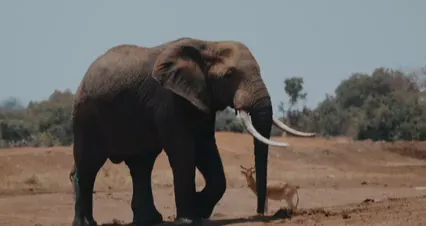
Why Is Lewis Thomas’s Perspective on Natural Man Important for Modern Lifestyles
Introduction
Lewis Thomas was a physician and writer known for his insightful essays. His concept of “Natural Man” emphasizes our connection to nature. Today, this perspective is crucial as we face environmental challenges. This article explores why his insights remain essential for modern lifestyles.
Summary and Overview
Lewis Thomas’s work, particularly in The Lives of a Cell, paints a vivid picture of humanity’s bond with nature. He argues that we are part of a complex web of life. Our existence hinges on this interconnectedness, which is often overlooked in our fast-paced world. Thomas highlights how human actions impact ecosystems and emphasizes the need for environmental awareness. By understanding our place in the ecosystem, we can foster a more sustainable way of living. His philosophy encourages a deeper appreciation for nature and urges us to act responsibly toward our environment.

For a deeper dive into the intricate relationships within our ecosystem, consider picking up The Lives of a Cell by Lewis Thomas. This book will make you feel more connected to the world around you, and who knows? You might even impress your friends with your newfound knowledge!
Understanding the significance of Lewis Thomas’s perspective on “Natural Man” is essential for addressing modern lifestyles and environmental challenges. why is lewis thomas’s perspective on natural man important for modern lifestyles
The Philosophical Underpinnings of Natural Man
Thomas defines “Natural Man” as an individual deeply connected to the natural world. This concept challenges modern anthropocentrism, which places humans at the center of existence. Instead, he envisions a more holistic view, where humans are one part of a larger ecological framework. Philosophically, Thomas draws on ideas from biology and ecology to illustrate this interconnectedness. He suggests that recognizing our role within nature can lead to a more harmonious existence. Understanding this relationship reminds us that our survival depends on the health of our environment, encouraging behaviors that benefit both people and the planet.
The Interconnectedness of Life
Lewis Thomas profoundly emphasizes the interdependence of all living organisms. He argues that every life form is part of a larger system. This idea is beautifully illustrated in his essay, “The Lives of a Cell.” Here, he compares Earth to a giant cell, highlighting how we share many components with other organisms.

For example, Thomas points out that our mitochondria, the powerhouses of our cells, are descendants of ancient bacteria. This connection underscores the idea that we are not separate from nature; we are intricately woven into its fabric.
Today, this perspective aligns with contemporary ecological theories, which stress the importance of biodiversity and ecosystem health. Understanding this interconnectedness encourages a more sustainable approach to living. It reminds us that our actions impact not just our lives but the entire planet.
If you want to dive deeper into the importance of trees and their communication, check out The Hidden Life of Trees: What They Feel, How They Communicate by Peter Wohlleben. This book will make you see trees in a whole new light—like the wise old sages of the forest!
Relevance to Modern Environmental Issues
Addressing Climate Change
Thomas’s perspective is crucial in addressing climate change. He urges us to recognize that humanity is part of a larger ecological system. This understanding is vital as we face unprecedented environmental challenges.
According to the Intergovernmental Panel on Climate Change (IPCC), global temperatures have risen by about 1.2°C since the late 19th century. This increase has led to extreme weather events, rising sea levels, and disrupted ecosystems. Viewing ourselves as integral parts of this system can inspire collective action.

By seeing our connection to nature, we become more motivated to protect it. Thomas’s insights encourage us to adopt sustainable practices and policies that reflect this relationship. Understanding that we are not above nature but part of it can change our approach to environmental stewardship.
For those who are passionate about conservation, The Sixth Extinction: An Unnatural History by Elizabeth Kolbert is a must-read. It dives into the current extinction crisis and will have you feeling all the feels about our planet.
Biodiversity and Conservation
Thomas’s ideas strongly relate to biodiversity conservation. He highlights how human activities often threaten other species and ecosystems. For instance, habitat destruction, pollution, and climate change are causing species extinction at an alarming rate.

Conservation efforts inspired by Thomas’s philosophy aim to restore balance. Take the reintroduction of wolves to Yellowstone National Park. This initiative has improved ecosystem health by regulating deer populations, which in turn supports diverse plant life.
These successful conservation stories exemplify the benefits of understanding our interconnectedness with all life forms. By valuing biodiversity, we can protect the planet’s health and ensure a sustainable future for generations to come.
The Role of Science and Education
Science as a Human Endeavor
Lewis Thomas believed science is more than just facts. It’s a shared journey of curiosity and exploration. He emphasized that science is a human endeavor, rooted in our innate desire to understand the world. This perspective is vital in today’s educational landscape.
Fostering curiosity in education can ignite passion for inquiry. Research shows that students engaged in hands-on science activities are more likely to pursue STEM careers. A report indicated that 75% of students found science more interesting when they could experiment and explore.

Thomas’s insights remind us that education should not only impart knowledge. It should inspire students to ask questions and seek answers. By nurturing a sense of wonder, we can cultivate the next generation of thinkers and innovators.
To inspire curiosity in the young ones, consider gifting them a Nature Journal for Kids. It’s a fantastic way for kids to explore and document their adventures in the great outdoors!
Integrating Humanities and Science
The blending of humanities and science creates a richer educational experience. Lewis Thomas advocated for this multidisciplinary approach. He believed that understanding human experiences can enhance scientific inquiry.
Programs like STEAM (Science, Technology, Engineering, Arts, and Mathematics) exemplify this integration. They encourage students to apply creativity in scientific fields, fostering both critical thinking and innovation. For instance, schools incorporating art into science curricula report improved student engagement and understanding.

Thomas’s work highlighted the importance of this connection. By bridging the gap between disciplines, we can encourage holistic learning. This approach prepares students to navigate complex global challenges, ultimately enriching both their lives and society.
Practical Applications for Modern Lifestyles
Sustainable Living Practices
Embracing sustainable living practices aligns perfectly with Lewis Thomas’s philosophy. He believed in our deep connection to nature and the responsibility that comes with it. Individuals can adopt simple yet impactful practices to reflect this mindset.
For example, reducing single-use plastics, composting, and supporting local agriculture are great steps. These actions not only benefit the environment but also promote healthier lifestyles. Statistics reveal that sustainable practices can reduce individual carbon footprints by up to 30%.

Furthermore, communities that prioritize sustainability report higher overall well-being. By implementing these practices, we contribute to a healthier planet and a more vibrant life. Thomas’s insights guide us toward a life that harmonizes with nature, reminding us of our role as caretakers of the Earth.
If you want to make your gardening experience even better, consider using an Organic Gardening Kit. It’s perfect for those who want to grow their own food and contribute to a sustainable lifestyle—plus, your taste buds will thank you!
Community and Social Responsibility
Community plays a crucial role in fostering our connection to nature. When people come together, they can cultivate a shared sense of responsibility toward the environment. Lewis Thomas emphasized that our well-being is tied to the health of our surroundings. This idea is more important now than ever.
Social initiatives inspired by Thomas’s principles are emerging across the globe. For instance, community gardens promote biodiversity while providing fresh produce. They not only beautify neighborhoods but also strengthen bonds among residents. This collaboration enhances our appreciation for local ecosystems.

Another example is the rise of clean-up projects along rivers and beaches. Groups often organize to remove litter, which helps restore habitats for wildlife. These initiatives embody the spirit of Thomas’s philosophy, reminding us that our actions impact the ecosystem.
In urban areas, tree-planting programs are gaining traction. They counteract pollution, improve air quality, and create green spaces. Such projects highlight the interconnectedness of community health and environmental stability. By participating in these efforts, individuals contribute to a more sustainable future.
To add a touch of nature to your home, consider getting a Indoor Herb Garden Kit. It’s a fun way to grow your own herbs, and you’ll feel like a master chef every time you add fresh basil to your pasta!
Conclusion
In summary, Lewis Thomas’s perspective on the “Natural Man” is vital for modern lifestyles. His insights remind us of our deep connection to nature and the importance of community responsibility. By embracing his principles, we can foster a healthier relationship with our environment. I encourage you to reflect on your own interactions with nature. Consider how adopting Thomas’s ideas can enhance your life and the world around you. Together, we can create a more sustainable and connected future.
What are some practical ways to incorporate Thomas’s ideas into daily life?
Integrating Lewis Thomas’s philosophy into your daily life can be simple yet impactful. First, practice mindfulness in nature. Take walks in parks or gardens, appreciating the intricate connections around you. This can foster a deeper understanding of our role in the ecosystem.
Second, prioritize sustainable choices. Use Reusable Produce Bags, bottles, and containers. Support local farmers and businesses to reduce your carbon footprint. Every small action contributes to a healthier planet.
Third, educate yourself and others about ecology. Share articles or books that discuss interconnectedness and sustainability. Consider joining a community group focused on environmental issues. This creates a ripple effect, encouraging collective responsibility.
Finally, reflect on your consumption habits. Ask yourself how your choices affect the environment. Reducing waste and opting for eco-friendly products can help align your lifestyle with Thomas’s vision of harmony with nature.
How does Thomas’s perspective relate to current scientific debates?
Lewis Thomas’s ideas resonate deeply with ongoing scientific discussions, particularly in ecology and climate science. His emphasis on interconnectedness parallels current debates about biodiversity loss and conservation efforts. Scientists now recognize that healthy ecosystems rely on diverse species working together.
Additionally, Thomas’s views support the growing concern around climate change. By framing humanity as part of the ecological system, he highlights the need for collaborative solutions. This perspective is crucial as researchers explore innovative methods to combat climate change and promote sustainability.
Furthermore, his insights bridge the gap between science and the humanities. They encourage interdisciplinary approaches to address complex problems, fostering a more holistic understanding of environmental challenges.
Why is understanding interconnectedness important?
Understanding interconnectedness is vital for both personal well-being and global health. When we recognize our place within the ecosystem, we cultivate a sense of responsibility. This awareness promotes sustainable living and environmental stewardship.
On a personal level, acknowledging interconnectedness can enhance mental health. Studies suggest that spending time in nature boosts mood and reduces stress. By valuing our relationship with the environment, we nurture our well-being.
Globally, interconnectedness fosters cooperation. As we face pressing issues like climate change, collaboration across borders is crucial. Acknowledging that our actions affect others encourages collective efforts toward sustainable solutions.
Ultimately, this understanding inspires a more compassionate approach to living. By recognizing our ties to nature and each other, we can create a healthier, more harmonious world.
Please let us know what you think about our content by leaving a comment down below!
Thank you for reading till here 🙂
All images from Pexels




